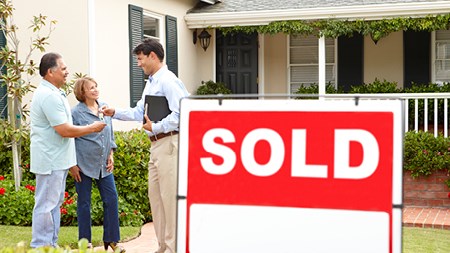You can continue to live on your property by building a flat or splitting your house and renting part of it out.
You all know the routine: you buy a home, raise your children and sell once the children have flown the coop. There are a number of reasons why this is a good idea. Firstly, the property often becomes too large to maintain, security issues become more pressing as we get older and well…all of our friends are selling up and moving into smaller units or into retirement villages, so we might as well follow suit.
“Unfortunately, there are times when a decision to sell up and invest your money elsewhere can backfire, says Cape Town estate agent, Andre de Villiers. “I know of a couple of instances where although selling up and downsizing seemed like the logical thing to do, the people involved essentially became homeless and were forced to move in with their children.”
He says that even if everything goes according to plan and the seller manages to secure a home in a good retirement village, there are emotional issues that can affect the overall decision to move.
“Downsizing is painful to most people. More often than not, sellers have to dispose of a large chunk of their belongings - a lifetime of memories for most, and this invariably puts an enormous damper on the entire retirement process.
“I've often wondered why homeowners don't take a broader look at the situation and instead of throwing in the towel and moving out of a family home, use the home to enhance their retirement years by adding on a couple of apartments or by splitting the house in two and renting out the one side.”
De Villiers says that there are a number of benefits in doing this: the homeowner has better security due to the fact that there are more people staying on the property and in addition to the shared costs that will invariably occur (think about your garden service, pool and cable TV costs) the owner will be deriving a reliable monthly income from the rental. “Perhaps the biggest benefit of all is that the landlord is able to keep a close eye on any tenant ensuring they not only maintain their property to an acceptable standard, but adhere to any rules that may be in place.”
A homeowner would probably not have any trouble finding tenants considering a recent Tenant Network Profile (TPN) report which highlighted that there is still a grave shortage of rental property available in South Africa.
“I've built and leased out a flat on my property. Obviously the choice of tenant is important – you can't have undesirables or people who don't respect your space living on the premises, however, it needs to be said that I've never had problems with any of my tenants, probably because I laid out the ground rules from the start. On the plus side, I travel extensively and the fact that I have people living on the premises has created a bit of a lock-up-and-go scenario because there is always someone ‘at home’.”
Regardless of whether you choose to sub-divide the home or build on a granny flat or two, permission must be sought from the relative authorities before any work commences.



